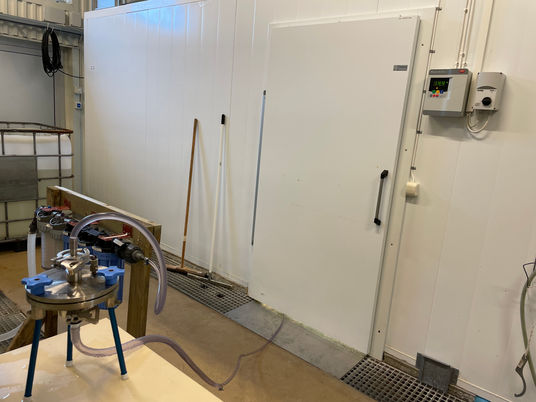
Hg methylation in oxic marine waters
The purpose of this project is to unravel the microbial mechanisms and metabolic bases of Hg methylation in seawater under oxic conditions, and how this process is affected under climate change conditions.
Sample collection
The research vessel Botnica was used to collect up to 500 L of surface water from a costal area next to Umeå Marine Sciences Centre (UMF). The seawater was pre-filtered through 300 µm to discard large particles.
Water filtration and experimental setup
The seawater was brought to UMF facilities, where extra filtration steps were performed: from 50 µm to 0.7 µm. Hg methylation is mainly a biochemical process carried out by prokaryotes, so this study was focused on such organisms. At 0.7 µm, most of the eukaryotic organisms are removed while keeping the prokaryotic communities. Thereafter, this 0.7 µm filtered water was set up into 30 L aquaria (12 in total).
Applying the treatments
In order to study climate change-induced conditions (i.e., increased DOM concentration in coastal waters), we used a soil extract prepared from sediments collected from an estuary near UMF coastal area. On the other hand, we also increased the concentration of Hg by addition an inorganic Hg solution.
Previous studies and findings
In 2022, we published a similar study addressing Hg methylation in oxic waters under climate change conditions (Juanjo et al., 2022). However, the new study addresses additional aspects: 1) How pre-equilibration of Hg with DOM affects Hg methylation; 2) Metatranscriptomic analyses to study genes and metabolic pathways involved in Hg methylation under truly oxic conditions.
For more information about this topic, a review paper is currently under review by Frontiers in Marine Science.











